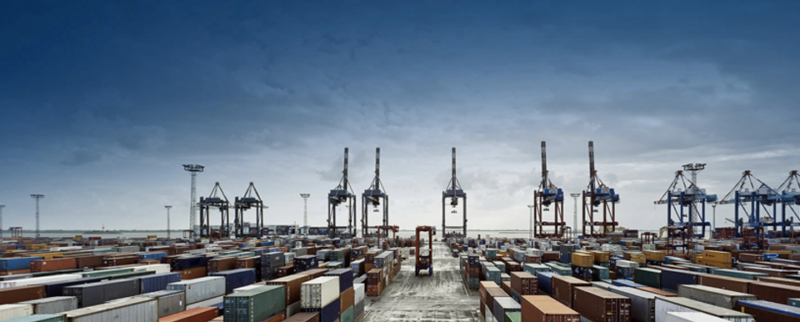The new EU Community Customs Code includes a number of provisions that will come into force in Belgium in 2017. Here we introduce a number of new features that declarants will have to deal with in the near future.
In a following article we will go into greater detail about these new aspects in the course of 2017.
EORI now also required for imports
Economic operators who import goods will soon also be required to identify themselves with an EORI (Economic Operator Registration and Identification) number. This needs to be done in only one member state, since the EORI number will be recognised by all Customs authorities in the EU.
Companies must quote the EORI number in all communications with Customs. This has already been obligatory for the past few years when exporting goods.
As of the roll-out of version 17 of the Paperless Customs & Excise (PLCE) system, planned for 7 January 2017, use of the EORI number will also be obligatory for imports. This number must be mentioned in box 8 of the import declaration.
More information on how to apply for and obtain an EORI number can be found on the Customs website.
Reduction in late payment interest
The General Administration of Customs & Excise is reducing the rate of late payment interest from 9.6% to 2%. The lower rate applies to Customs debts that arose after 1 May; for debts incurred before then the rate of 9.6% still applies.
This brings the Belgian Customs into line with the provisions of art. 114 of the Community Customs Code, which states that the rate of late payment interest must be equal to the rate charged by the European Central Bank (currently zero percent) plus two percentage points.
No interest is payable on amounts of less than 10 euros.
In the case of excise the rate of 9.6% continues to apply, although a request to lower it has been placed on the agenda of the National Forum (the platform for consultation between the General Administration of Customs & Excise and the private sector).
Electronic REX replaces paper FORM.A
The REX (Registered Exporter) system comes into force on 1 January 2017. Under this system, exporters can obtain certification for the origin of goods by letting themselves be registered by the Customs authority.
This is relevant for e.g. imports from countries that enjoy a preferential import tariff, namely GSP (General System of Preferences) countries.
With this system the European Customs will make up-to-date information available on registered exporters in a particular GSP country. This will be a trans-European system that will also contain information on EU market players, to support exports to GSP countries.
This will also have consequences for European importers of goods with a preferential import tariff, as until now they had to produce a paper certificate of origin in order to obtain the lower tariff.
Now instead they will simply have to enter a certain code and the REX number.
Note however that the REX system will be introduced very gradually, as and when exporters in the GSP country concerned become registered. The OCT (overseas countries and territories) countries have all requested (and obtained) individual postponement until 2020.

